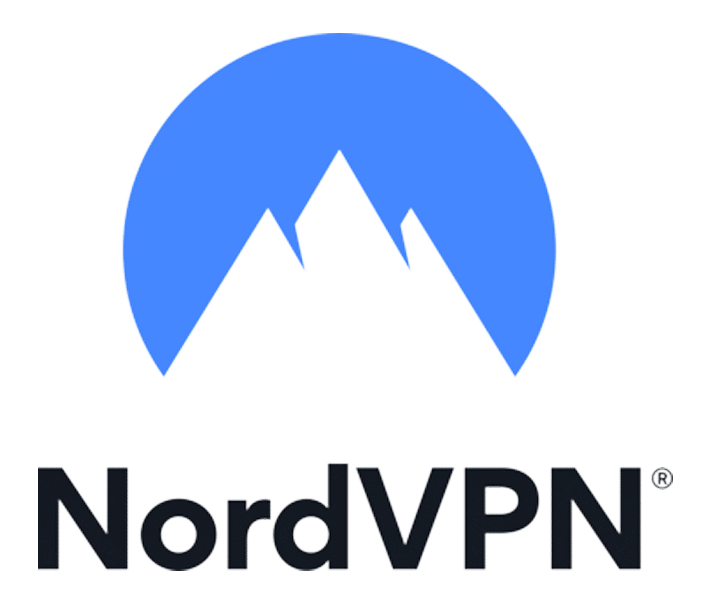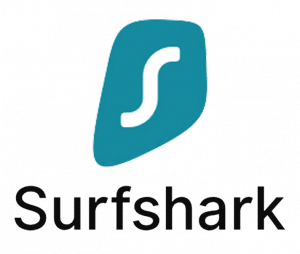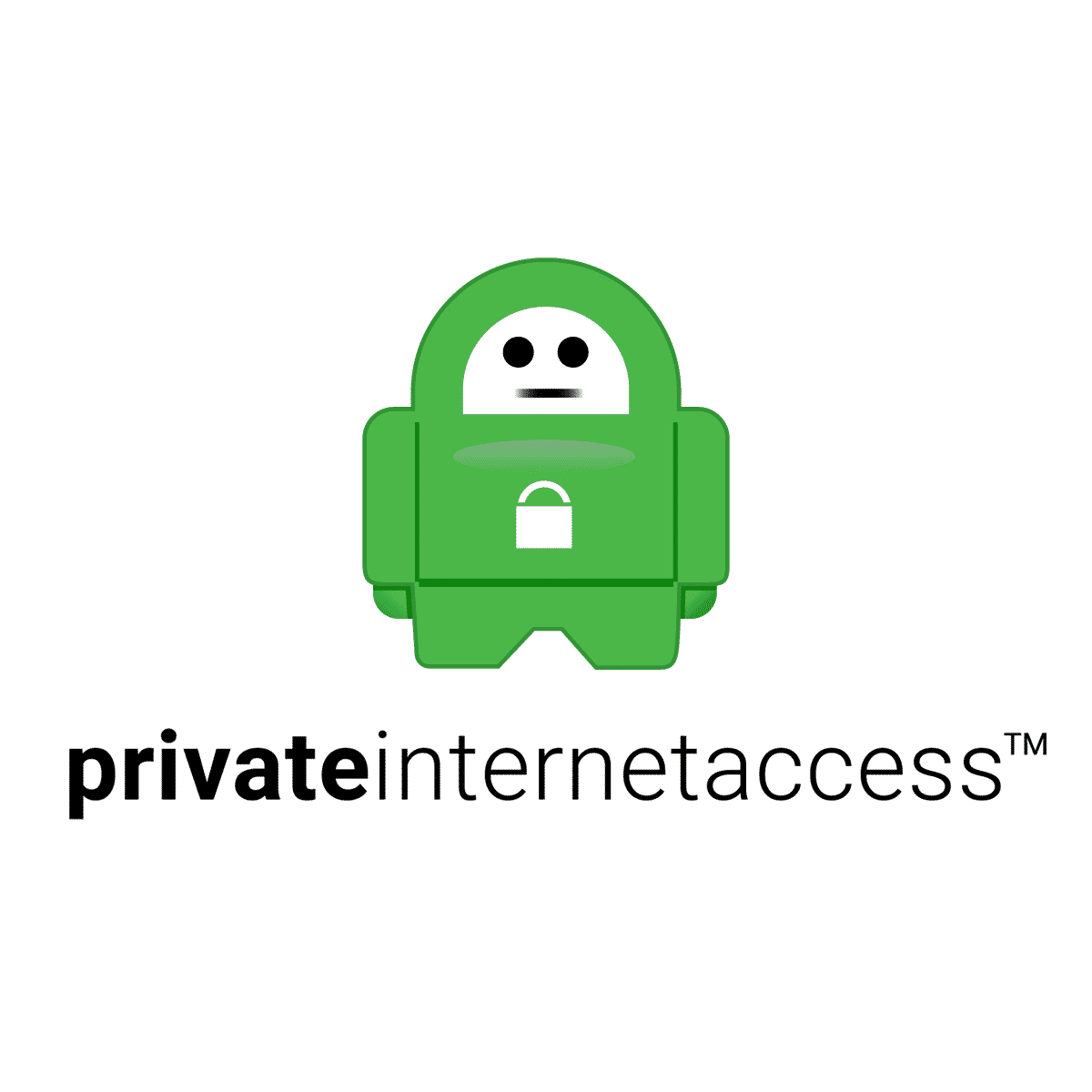ExpressVPN vs. NordVPN for Japan
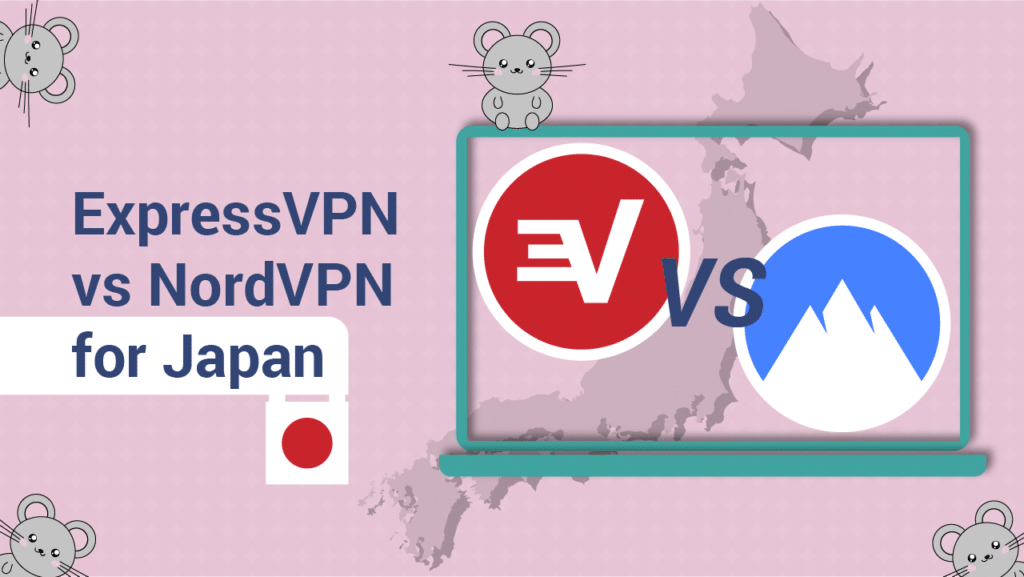
Japan has a thriving internet culture. The country has a plethora of TV shows exclusive for viewing only in Japan. However, internet users have often complained of the censorship they find when using the country’s internet. While not as strict as their Chinese neighbors, the Japanese authorities still find ways to actively curtail the freedom of users. In cases of government interference such as the one in Japan, an internet user’s best bet is to use a VPN for unhindered access.
If you are considering using a VPN, you must have found that quite a number of them exist. They all have one thing in common: they all promise to be excellent. However, common sense tells us that that is impracticable. Thus, in a quest to determine the veracity of these providers’ claims, we’ve pitted them against each other.
In this review, we examine two heavyweights: NordVPN and ExpressVPN. We discuss their features and offers, especially concerning providing service to Japanese users. In the end, you will also find our recommendation, the provider that bests the other.
Let’s get to it!
Overview
ExpressVPN and NordVPN need no introductions in the VPN market. These providers have the benefit of long years behind them. Even more so, they are known for being consistent in their delivery of stellar services. Hence, opting for any of them would be an investment well made.
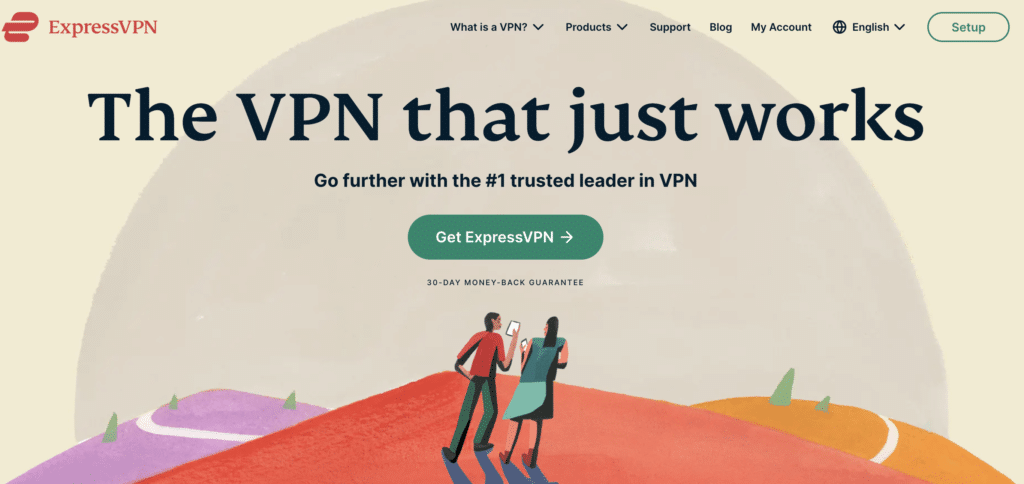
ExpressVPN has more than 3000 servers in 94+ countries. Its servers are recognized as being speedy, delivering whatever you need within minutes. It has robust security and privacy features, including supporting the AES 256-bit encryption model, several protocols, including its recent addition, the Lightway protocol. It also has standard features like the kill switch and allows for split tunneling. It provides apps for the major devices and also has extensions for various routers. You get 5 simultaneous connections with it and the standard 30-day money-back guarantee period.
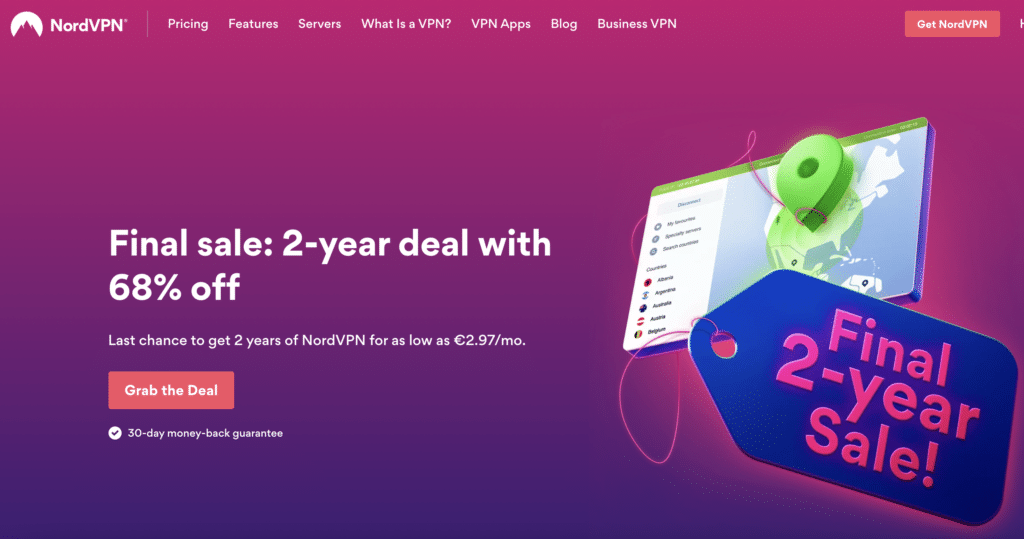
NordVPN is not far behind. In fact, it has close to 2000 servers more than its rival, putting its server strength at 5000, although these servers are present in just 59 countries. Like its rival, it grants users access to geo-blocked content seamlessly, courtesy of its powerful servers. It does well, too, when it comes to security. It secures its servers with military-grade encryption and has unique features such as its NordLynx protocol. It also has apps for the major operating systems: Android, iOS, macOS, Linux, and Windows. It allows for 6 devices simultaneous connection, slightly above the average. You get the standard 30-day guarantee with this provider, too.
The above is to give you an overview of both providers. In the next sections, we will answer specific questions and identify the particular features of each provider.
Server Coverage
The number of servers a provider has is crucial for several reasons. The first is that it determines the possibility of connecting to different platforms. This is especially the case for platforms with geo-restrictions on them. For instance, sites like Japanese Netflix, Japanese Hulu, BBC iPlayer, and the likes place restrictions on their contents.
Furthermore, it determines the ease with which you connect. Providers with a limited number of servers are perpetually plagued by slow speeds. Thus, the higher the number of servers, the easier it will be to access whatever content you want.
Similarly, the location of these servers is critical. If you intend to connect to a specific location, your provider of choice should have servers there. Hence, in this instance, the ideal provider should have servers in Japan and/or neighboring countries. This is to make it easy for those connecting to Japan-specific streaming content to do so seamlessly. In the same vein, the provider should have its tentacles globally spread out. This will benefit Japanese users who would want to connect to other locations outside of their primary locale.
ExpressVPN has 3000 global servers in 94 countries and 140 locations. It has 5 of those servers located in Japan (in Yokohama and Tokyo). These servers all support the Lightway protocol., OpenVPN UDP, and TCP, IPSec, IKEv2, and PPTP. These servers will be enough to get you whatever you want in Japan. If you are looking to access other locations, you can rely on ExpressVPN to make that happen within the shortest possible time.
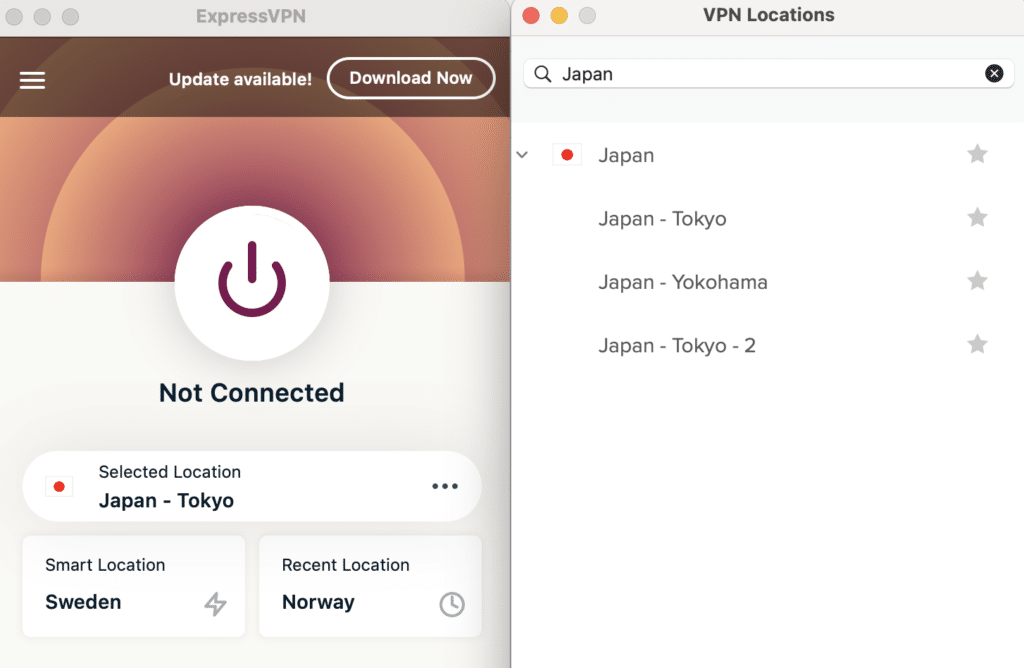
NordVPN has 5500+ servers in 59 countries. Of this number, more than 80 can be found in Japan. This provider gives you a Quick Connection button that automatically connects you to the best Japanese server whenever you go online. This is rather helpful.
When it comes to server count, NordVPN takes this one. It has a higher number of the two.
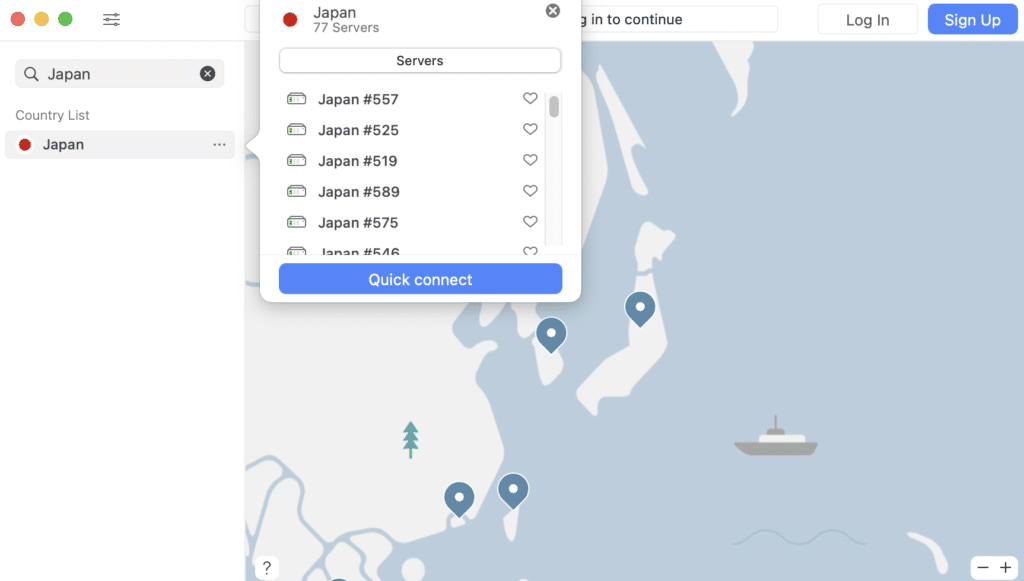
Speed and Performance
Lags and slow speed can ruin any browsing experience for you. Generally, a VPN reduces your browsing speed. This is because of the time it takes to route your network through its servers and back. The best providers do all within their power to make sure the speed difference is negligible. How do these two providers fare when it comes to the speed and overall performance of their apps?
ExpressVPN is highly regarded because of the speed of its servers. You would scarcely notice any drop in speed when you make use of any of its apps. It offers you unlimited bandwidth; this makes sure you do not get cut off in the middle of downloading any content. Furthermore, it defeats ISP throttling. Hence, your Internet Service Provider cannot maliciously slow down your speed when you are connected to the network. Finally, you get to test the speed of each server before use. ExpressVPN has an in-built speed test feature that lets you know how fast, or slow, the server is.
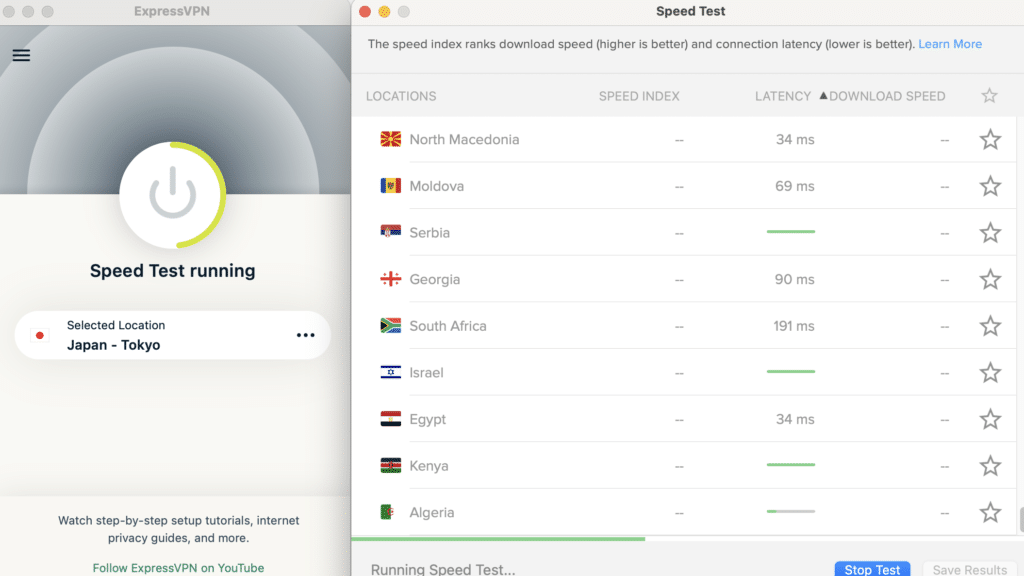
NordVPN is also no slacker when it comes to speed. It automatically connects you to the fastest server in your location. Also, its special protocol, NordLynx, is specifically built to enhance speed and provide an excellent user experience. When it comes to streaming content, the SmartPlay feature makes sure the experience is hitch-free. You will experience zero lags and buffering when you connect.
No doubt, these two providers give you your money’s worth when it comes to speed. Judging by this metric, anyone you settle for will be well worth it.
Safety and Security Features
It goes without saying that security is the primary job of every VPN. Cybercrooks and hackers are on the prowl, looking to take advantage of even the slightest chink in your security. A VPN encrypts your traffic, making it impervious to interference from any quarter.
The situation in Japan is peculiar. Due to the regulation from the government, there is a higher governmental presence online. TV shows and even streaming platforms could be shut down arbitrarily. When this happens, internet users would be shut off from their favorite programs.
Additionally, there is the risk of running afoul of the law. If you use your online platform to further any opinion that is considered contrary to what the government sanctions, you could be in danger. You may have to serve prison sentences. Hence, the ideal provider should have security features that are robust enough to beat the government’s all-seeing eye.
ExpressVPN provides the regular security features you’d expect of a top-tier provider. It secures its servers with the AES 256-bit military encryption. Also, it provides an automatic kill switch that kicks in if the VPN protection inadvertently fails and further allows for split tunneling.
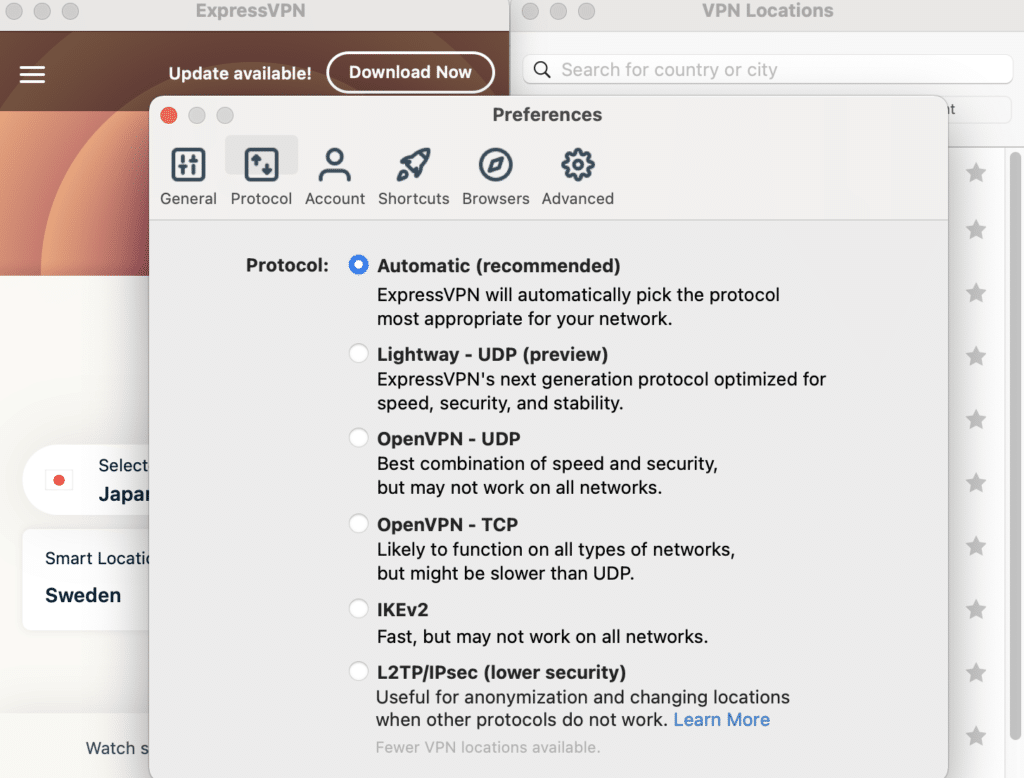
In addition to this, the provider has other unique security features that put it ahead of its competitors. One of such is its TrustedServer security option. This feature ensures that all of its servers run on RAM only and that no data is stored on a hard drive. This enhances security. It further wipes down the servers whenever you are done with each session. This prevents hackers from gaining access to your data even if the provider gets compromised at any point.
ExpressVPN conducts its own DNS leak tests. A DNS leak test checks whether the provider truly masks your IP address or not. With ExpressVPN, you can conduct the tests to come to your own conclusion. Finally, this provider has evolved its own modern protocol known as Lightway. Lightway is touted to be more secure, faster, and more reliable than any other currently available in the VPN market. These features should sway you if you are still undecided.
NordVPN, on the other hand, has powerful security features, too. Like ExpressVPN, it has the basic ones, i.e., the AES 256-bit encryption, support for popular protocols such as the OpenVPN and IKEv2 as well as providing a kill switch.
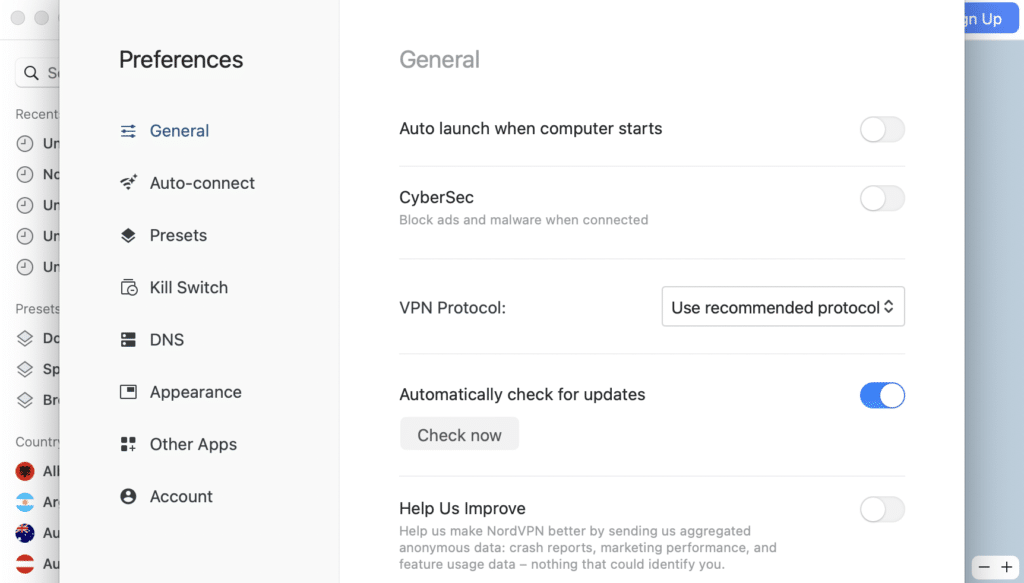
In addition, you can combine NordVPN with the Onion Router for stronger security while browsing. It also gives you a dedicated IP address that can only be used by you – this is a feature not many VPNs provide. Furthermore, you get the benefit of encrypting your network twice. This gives you a second layer of security beyond the cursory encryption other providers give you. You can turn on its CyberSec feature to prevent being disturbed by ads and any other malware. Just like ExpressVPN, this provider has its unique protocol known as NordLynx. This protocol is one of the best in the market, providing security and stellar speed like no other.
These two providers provide great service when it comes to security. Even for tough locations such as Japan, you can expect that you will be totally protected the entire time you use any of the two services. Hence, in this area, NordVPN and ExpressVPN are on par.
Anonymity and Privacy Features
The privacy features a provider has is often of great concern to prospective users. This is because, even though the VPN provider shields the user from third-party interference, the user’s data is bare before the provider. An unscrupulous provider could sell your data to data mining companies. It is usually in cases like that that you find targeted ads appearing during your internet sessions. Even further, your details could get into the hands of fraudsters, or worse, the government. If your cover gets blown, it only remains to be seen what would happen to you.
There are twin factors that are considered in gauging the privacy features of any company. The first is whether it retains logs of users’ activities. The ideal provider should not keep any logs of any action carried out by the user while on the VPN’s service. Thus, even if the Japanese authorities request or compel the provider to reveal your data, there will be nothing left for them to see.
The second factor is the location of the company. Certain countries are considered privacy-friendly. They support the right of internet users to surf freely without interference from their government. This means that the provider would be under no obligation to give up your data.
ExpressVPN states that it does not collect or retain information related to users. Data relating to browsing history, traffic destination, data content, or DNS queries are strictly protected. This provider has comprehensive information about its privacy policies on its website. You can have recourse to that for clarifications.
Additionally, ExpressVPN has its headquarters in the British Virgin Islands. This is a privacy-friendly country. You will be safe from government interference with this provider.
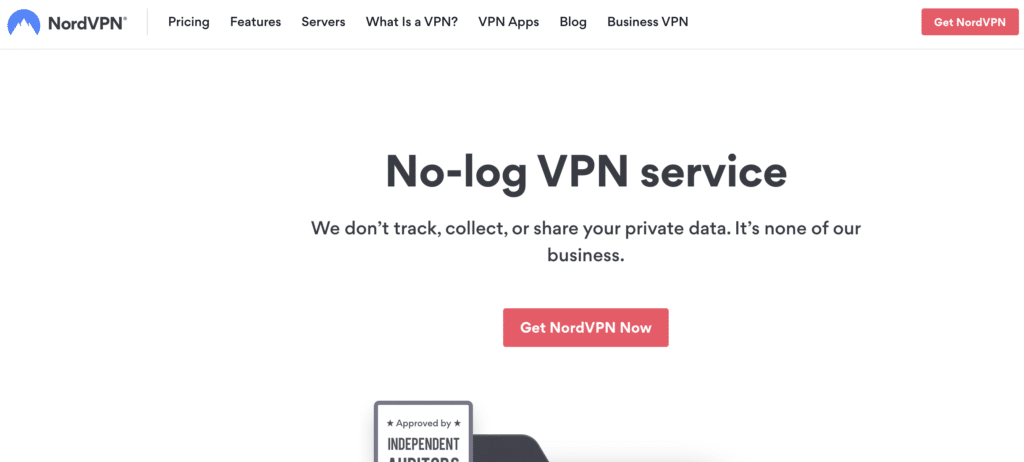
The same goes for NordVPN. This provider not only maintains its no-logs policy, but it has also had its claims verified by an auditing firm, PriceWatersCoopers (PWC). The audit came back clean, certifying that NordVPN kept to its no-logs claim. This provider is based in another privacy-friendly country: Panama. The region isn’t part of the 14 eyes network and will not compel NordVPN to give up users’ data at Japan’s behest.
Just like for security, when it comes to privacy and anonymity features, the two providers are also at par.
Platforms Supported
You ought also to pay attention to the platforms supported by whatever provider you want to go with. This is especially if you have multiple devices and would like the subscription to cover them all. Also, if you want to share connections with friends and family, you need a provider that allows such.
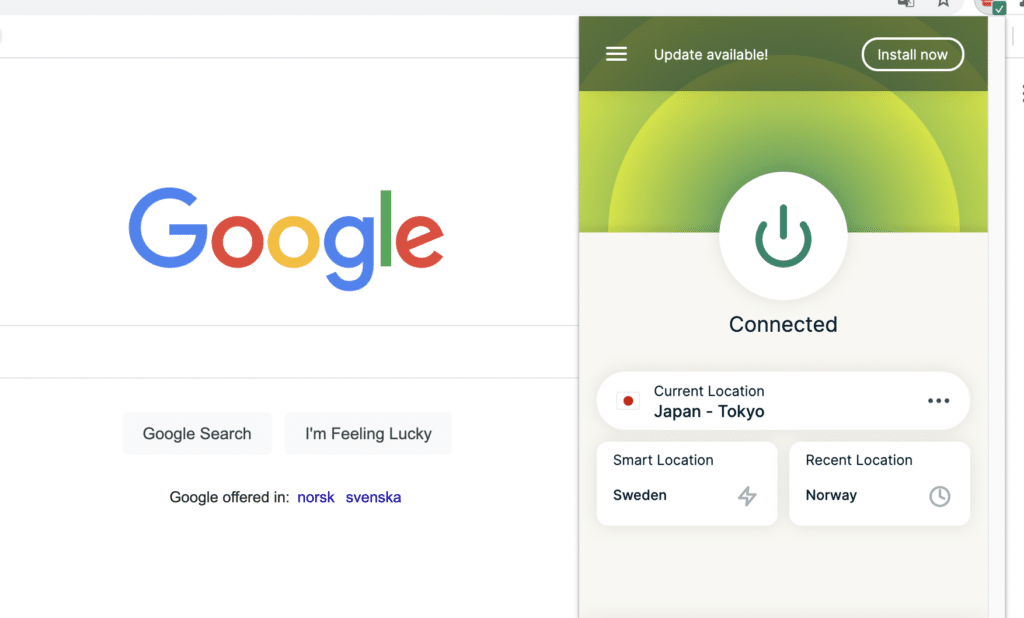
ExpressVPN and NordVPN both provide apps for the major operating systems, i.e., Android, iOS, macOS, Linux, and Windows. They also have extensions for browsers such as Chrome and Mozilla Firefox. You can also install it on a router for broader coverage.
One key area of difference is that while NordVPN allows 6 simultaneous connections, ExpressVPN allows the standard 5. NordVPN takes this one.
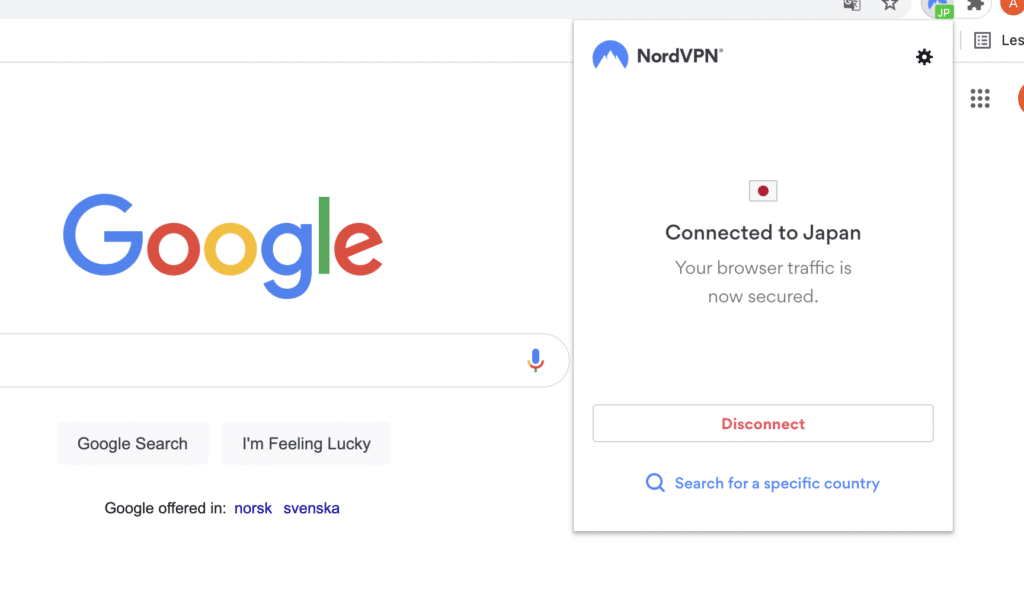
Streaming and Torrenting
Another benefit of a VPN is the fact that it can get you access to geo-blocked platforms. If some content is restricted in your location, a VPN can mask your real location, allowing you to connect to a server in your chosen destination. That way, you will be able to view the hitherto blocked content.
ExpressVPN allows you to access your favorite shows on any platform, regardless of the strength of the block on the platform. The provider can unblock Netflix, Hulu, HBO, Amazon Prime, Disney+, Showtime, amongst others. You can stream content on these platforms without experiencing the slightest hitch or inconvenience. You can rest assured that Japanese shows will not present a challenge to this provider.
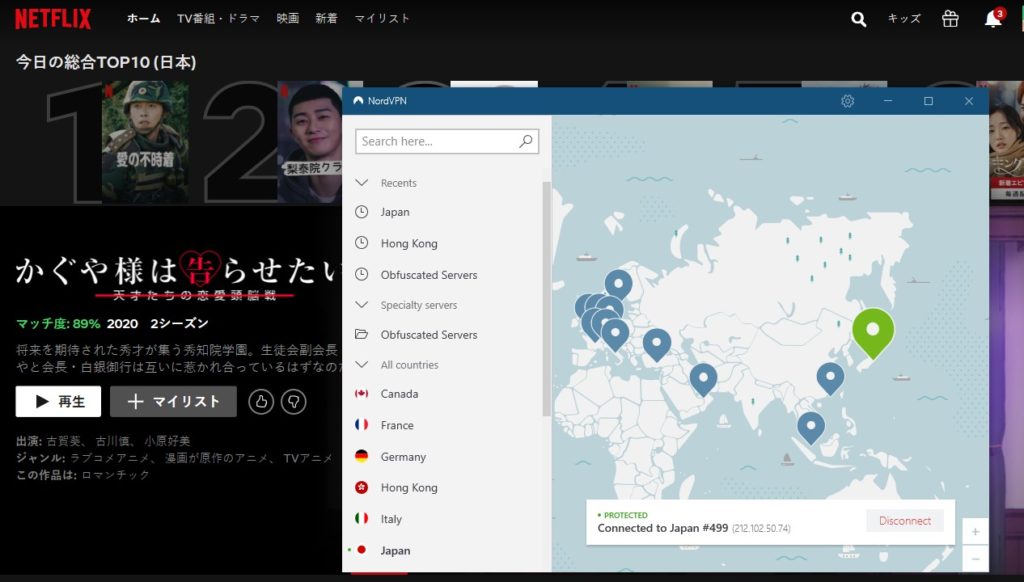
ExpressVPN does not advertise its support for P2P file sharing or torrenting on its website. However, when you connect to the service, you get a hitch-free torrenting session.
NordVPN claims to be the best when it comes to streaming content. It claims that its speedy servers, unlimited bandwidth caps, and support for multiple devices give it this advantage. Beyond that, this provider also gets you past even the toughest geo-blocks. From the comfort of your home in Japan, you can access content on platforms in the United States and even countries in Europe. In the same vein, you can access Japan-specific content with no challenges whatsoever from wherever you are.
The provider also claims to be great for P2P file sharing and torrenting. It has servers that are dedicated to this task. Thus, when you log into your account, you can connect to any of its specialized servers for this purpose. Even when you don’t, you will automatically get connected to a P2P server once the VPN detects such activity from your account.
ExpressVPN takes this one because of its broad range of support and ease of access to various streaming platforms.
Plans and Pricing
These providers belong in the to-tier ranks; thus, expectedly, their subscription costs are a little above average.
ExpressVPN
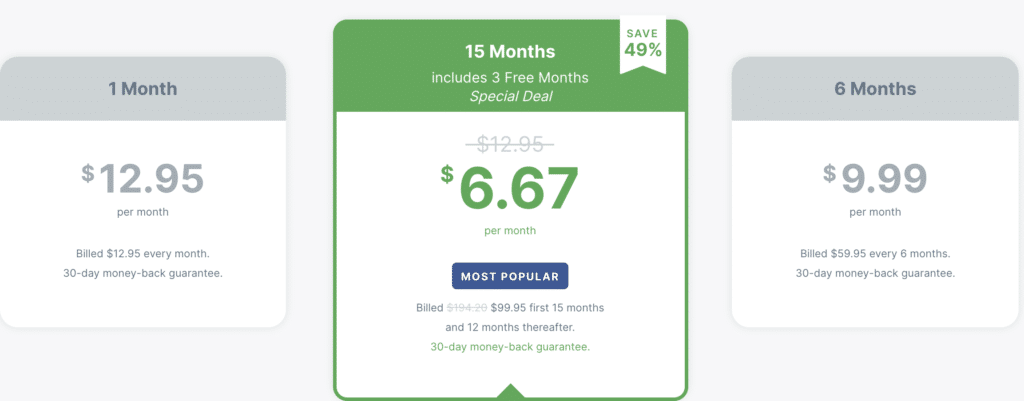
- Monthly Plan – $12.95
- 6-months plan – $9.99 per month
- 12-months plan – $8.32 per month
NordVPN

- Monthly Plan – $11.95
- 1-year plan – 4.92 per month
- 2-year plan – 3.71 per month
The difference between the offers of the two providers is negligible – especially for their monthly subscriptions. However, comprehensively, NordVPN’s plans are more affordable than its rival’s.
Our Recommendation
It is a tough call choosing between the two providers. They are both excellent providers and rank highly in the industry. However, our choice is ExpressVPN. It is remarkable on all fronts. Additionally, it has a slew of stellar features that would create an excellent experience for any VPN user.




